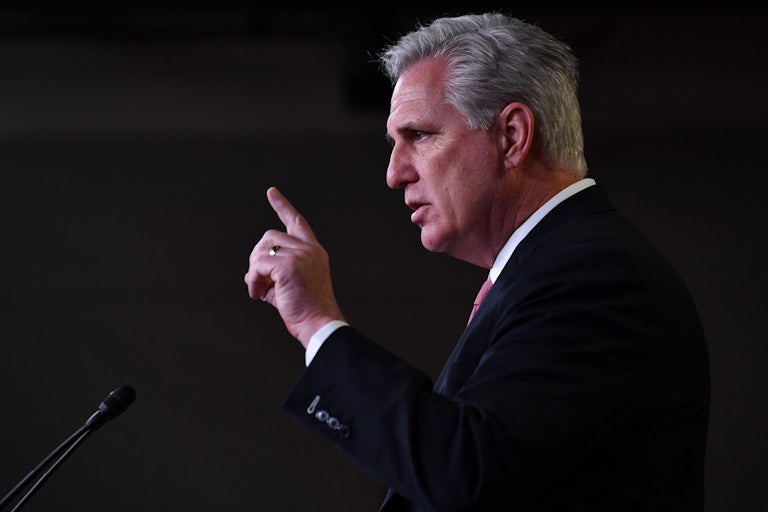Hunter Biden Laptop, Stephen Miller, and More: House Republicans Preview Their Agenda
Republicans are showing what they’ll do with their House majority.

Now that Republicans have taken control of the House of Representatives, they’re starting to indicate what their next steps will be … and it’s nothing good.
First on the agenda appears to be a new investigation into a laptop owned by Hunter Biden, son of President Joe Biden. Biden’s computer—which supposedly contains proof of fraudulent financial practices—has for years been a favorite line of attack for Republicans.
On Thursday morning, just hours after Republicans secured control of the House, Representatives Jim Jordan and James Comer held a press conference accusing the president of participating in his son’s business dealings. Jordan is expected to chair the House Judiciary Committee and could launch a probe into the younger Biden, and even the entire family.
The Biden Crime Family must be investigated as a matter of national security. https://t.co/RocK6fzZEV
— House Republicans (@HouseGOP) November 17, 2022
They also managed to slip in an accusation of human trafficking against the president.
Republicans are reportedly also planning to investigate current House Speaker Nancy Pelosi and the Department of Justice for their treatment of those arrested for involvement in the January 6 attack on the Capitol.
And former Trump adviser and far-right bigot Stephen Miller was spotted walking into the office of Kevin McCarthy, the House Republicans’ newly nominated leader.
It is not known what the two men discussed, but considering Miller oversaw Trump’s most draconian immigration policies, spread election lies, and promoted articles from white nationalist groups, his presence on Capitol Hill does not bode well.
But there’s no guarantee the Republicans will be unanimous in these moves. McCarthy faced opposition to his nomination, and it’s unclear whether he will have the 218 votes necessary in the full chamber to become speaker.
Some moderate Republicans may cross the aisle to push back on their more extremist colleagues. Representative Don Bacon has already said he will work with Democrats to avoid gridlock and even put forward a more centrist speaker of the House.








